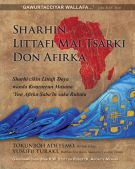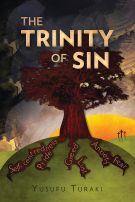| ISBN: | 9781783687596 |
|---|---|
| Imprint: | HippoBooks |
| Format: | Paperback |
| Dimensions (mm): | 229 x 152 x 26 |
| Publication Date: | 30/04/2020 |
| Pages: | 510 |
| Language: | English |

Engaging Religions and Worldviews in Africa
A Christian Theological Method
In a world of increasing globalization, we live amidst a clash of cultures, religions, and worldviews – each battling for the human heart and mind.
In this in-depth study, Yusufu Turaki offers a theological framework for engaging this clash of perspectives in Africa, where traditional African religions, colonialism, and exposure to Christianity have each had a lasting impact on contemporary African worldviews. Professor Turaki undertakes a systematic analysis of the nature of African Traditional Religion, its complex history with Christianity, and the need for African Christian theology to address its cultural and historical roots effectively. He provides both a conceptual framework and practical guide for engaging African cultures and religions with compassion, understanding, and a firm foundation rooted in scriptural truth. This book is an excellent resource for students of religion and theology, as well as those interested in Africa’s traditional heritage or drawn to the important work of cross-cultural and inter-religious dialogue.
Endorsements
This book is one of Professor Turaki’s tremendous contributions to African theological, social and ethical reflections. Its interdisciplinary and multidimensional approach and perspective makes it a very critical theological handbook.
Rev Sunday Bobai Agang, PhD
ECWA Theological Seminary (JETS), Jos, Nigeria
This book not only guides the African scholar and pastor, it also models a method of theologizing that can be used by faithful theologians in any culture where a traditional worldview needs to be renewed by the gospel of Jesus Christ.
Dr Joshua Bogunjoko, MD
SIM International Director
Turaki pitches his strong voice a notch higher in this book, suggesting a new methodology in the search for genuine Christian understanding that takes into consideration spiritual and social needs of African Traditional Religions.
Rev Aiah Foday-Khabenje, PhD
Association of Evangelicals in Africa
This classic from Turaki is a theological road-map for constructing an African Christian theology for public engagement!
Randee Ijatuyi-Morphe, PhD
Director, Hokma House, Nigeria
This book is a definitive text on the methodology for a sound Christian understanding of African Traditional Religion and its pervasive influence on the mindset of Africans that is bothbiblically rooted and theologically responsible.
Pastor Cosmas Ilechukwu, DMin
General Overseer, Charismatic Renewal Ministries, Inc.
The genius of the book is found in the extraordinary use of a method that reflects on the inner logic and workings of the traditional religious mind and thought in order to formulate an African theology that is relevant and biblical. In this regard, it is a double-edged sword that cuts deeply into African Traditional Religion and presents a truly biblical African Christianity.
Samuel Waje Kunhiyop, PhD
ECWA Theological Seminary, Kagoro, Nigeria
Turaki has provided a masterly and comprehensive work which will remain a reference point and guide for students and pastors for many years to come. It will surely go a long way to fulfil the author’s hope that it will help to strengthen the faith and commitment of African Christians, and that African peoples, societies and nation-states will thereby be renewed and transformed.
The Most Rev Dr Benjamin A. Kwashi
Bishop of Jos, Nigeria
I believe this volume will stand for decades to come not only as Professor Turaki’s magnum opus, but as a cherished guide to serious African Christians and scholars.
Pastor Gary S. Maxey, PhD
Founder, West Africa Theological Seminary
Given the challenges facing the church in Africa, this book is a valuable and timely contribution to the ongoing conversation on the nature and expression of modern African Christianity.
Elizabeth Mburu, PhD
Pan-Africa Christian University, Nairobi, Kenya
Everyone who serves the church in Africa, whether foreigner or indigene, will minister more effectively by reading and understanding the diverse facts and interpretations found in this book. I have often told my students and friends that Yusufu Turaki is Africa’s most thoughtful and prolific theologian. This book confirms that conviction by showcasing his vast knowledge, experience, wisdom and hard work.
Danny McCain, PhD
University of Jos, Nigeria
Turaki’s written and spoken words are as powerful as his presence. If you want to know what’s happening with the Christian gospel, as presented and received by Africans, this book is a definitive account. In my over forty years as a pastor and teacher, I have never run across a book that made such profound analysis of the engagement and interaction of religions and worldviews.
Rev Bauta D. Motty, PhD
ECWA Theological Seminary (JETS), Jos, Nigeria
Turaki’s wisdom and biblical and theological prowess in handling this sensitive subject in a comprehensive and balanced manner is commendable.
James Nkansah-Obrempong, PhD
Nairobi Evangelical Graduate School of Theology, Kenya
Table of Contents
- Foreword
- Preface and Acknowledgements
- Introduction
- The Approach
- Procedure
- Definition of Terms
- Part I: Understanding Western Christianity and Worldviews
- The Legacy of Western Christianity in Africa and the Need for an African Christian Theology
- Reactions to Missionary Christianity
- Approaches and Typologies of African Theology
- African Theological Issues
- Part II: Towards an Understanding of African Traditional Religion
- Various Approaches to the Study of Religion and Culture
- Defining Religion
- On Studying African Traditional Religion
- Fundamental Theological Beliefs
- Fundamental Psychological Beliefs
- Fundamental Philosophical Beliefs
- Fundamental Moral and Ethical Laws
- Ethical and Moral Principles
- The Supreme Being
- Gods, Divinities and Spirits: Monotheism or Polytheism
- Communication With and From the Spirit World
- The Acquisition of Power
- The Exercise of Power
- Being Human
- The Meaning of Life
- Part III: Engagement and Interaction between Christianity and the African Traditional Religion and Worldview
- Introduction
- Engaging with the Traditional Belief in Impersonal (Mystical) Powers
- The Power of God’s Sovereignty
- Engaging with the Traditional Belief in Spirit Beings
- Engaging with the Traditional Belief about the Origin of Spirit Beings
- Engaging with the Traditional Belief and Good and Evil
- Engaging with the Traditional Belief in Gods and Divinities
- Engaging with the Traditional Belief in Ancestors
- The Mediator: Jesus the Messiah
- Engaging with the Traditional Belief in the Supreme Being
- The Doctrine of God
- Engaging with the Traditional Roots of Spiritual Idolatry
- Engaging with the African Holistic Worldview
- The Power and Authority of Jesus the Messiah
- Engaging with the Traditional Communal Worldview
- Engaging with Traditional Moral and Ethical Beliefs
- Engaging with the Traditional Concept of Leadership
- Engaging with Governance, Management and Administration
- Engaging with the Need to Create a Responsible and Just Society
- Engaging with Traditional Human Values
- Engaging with the Doctrine of Man
- Engaging with the Doctrine of Sin
- Engaging with the Concept of Covenants
- Biblical Theology
- A Theological Framework of Religions and Cultures
- To Sum Up
- Conclusion
- Bibliography






